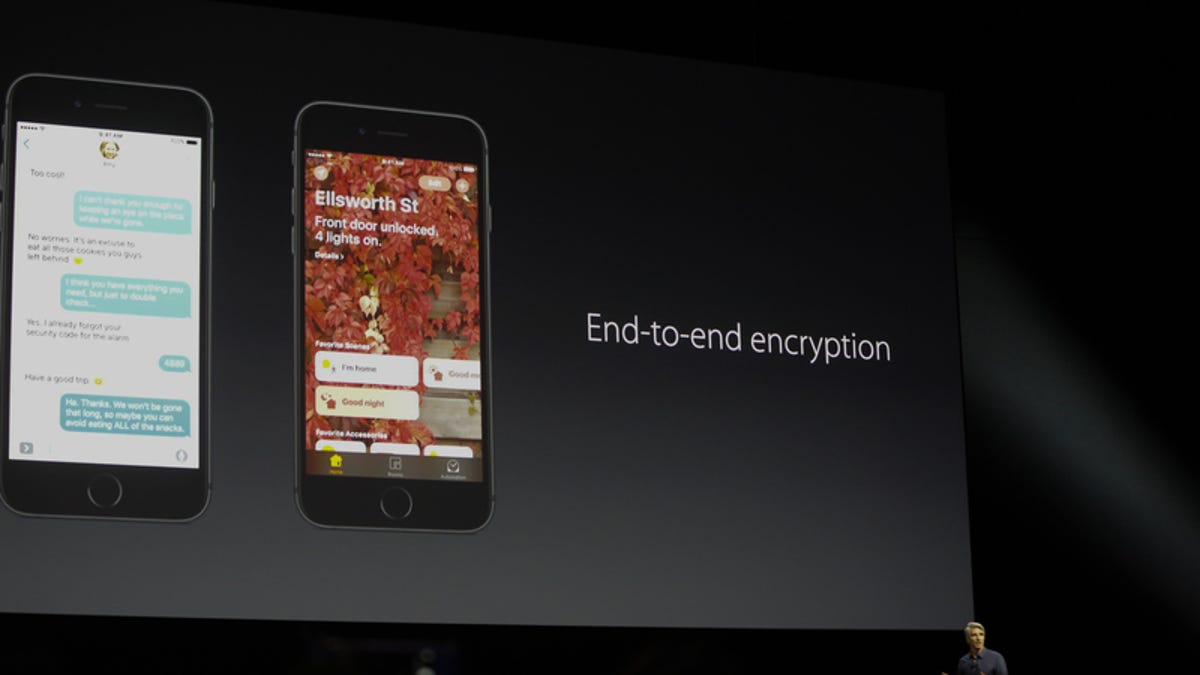Apple keeps privacy central at WWDC
Criminals and governments alike would have a hard time getting your data off Apple's products, and the company makes it clear during its developers conference that trend will continue.

Craig Federighi talks about end-to-end encryption at Apple's Worldwide Developers Conference on June 13, 2016.
Apple's commitment to data privacy showed no signs of waning Monday at the company's annual developer's conference.
"In every feature that we do, we carefully consider how to protect your privacy," Craig Federighi, Apple's senior vice president of Software Engineering, said during the keynote address at the company's World Wide Developers Conference in San Francisco.
That includes making sure end-to-end encryption -- a service that means your data stays scrambled up as it travels across the internet and even when it's stored on Apple servers -- is available by default in apps that run on Apple products, Federighi said. Apple joins messaging company WhatsApp in emphasizing the importance of the special kind of encryption. That company made the service available by default for all its messaging services in April.
The company is standing on firm ground when it claims to take privacy seriously. It spent most of the spring battling the US Department of Justice in court over whether it would help government investigators break into the iPhone 5C one used by of the San Bernardino shooters, as well as the iPhone 5S of an alleged meth dealer in Brooklyn, New York.
The data stored on the phones was scrambled up with encryption, a standard feature on iPhones and iPads.
See also
- iOS 10, MacOS Sierra and a better Siri: Everything Apple just announced
- Apple WWDC 2016 keynote kicks off
- See all of CNET's WWDC coverage
Each case ended when the government found an alternative way to access information on the phones, but they both still provided Apple the opportunity to fully air its arguments for keeping the encryption on its devices inviolable.
Earlier this year, as the court battles were underway, Apple announced it would produce more iPhone models with full device encryption.
On Monday, Federighi also described how Apple plans to use machine learning to analyze how you use Apple products and learn your preferences. That requires balancing cutting-edge technology with privacy measures to avoid stockpiling user information that's clearly tied to any one person.
"Differential privacy," Federghi said, lets Apple crowdsource and compare data while "keeping user data private."
This is a developing story. Follow our liveblog for the latest info from Apple's ongoing WWDC keynote.

